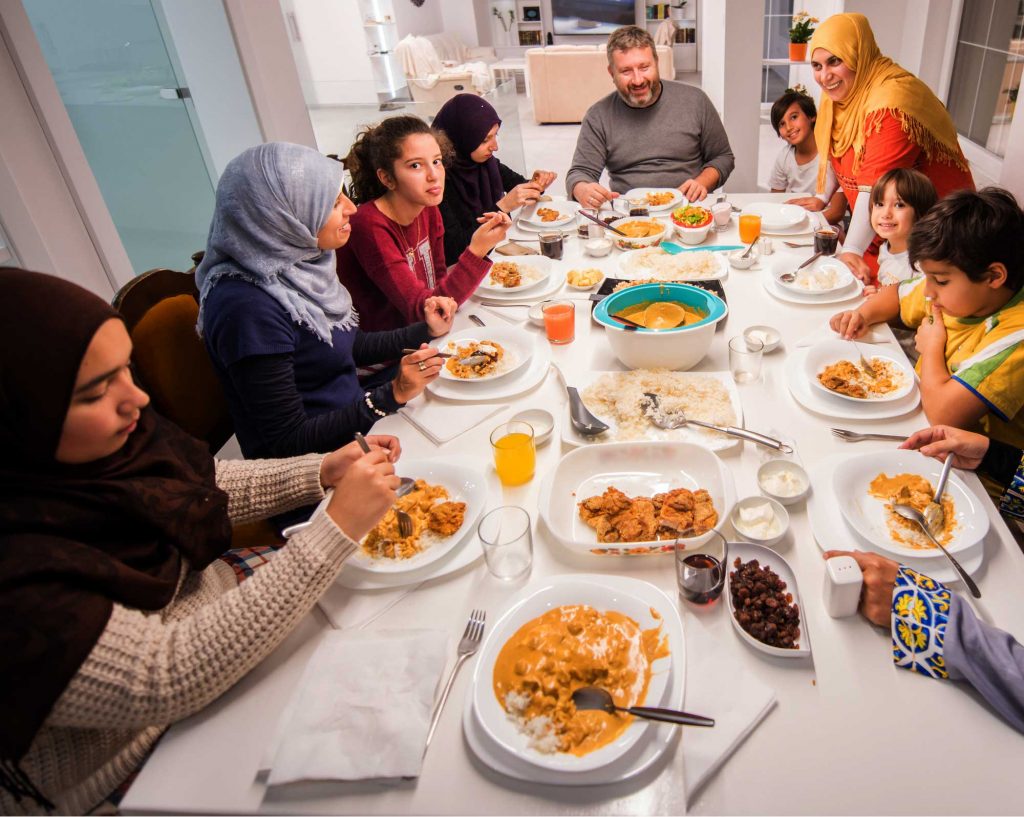Polygamy creates an immediate knee-jerk reaction in nearly every individual. Either it’s a noble sunnah meant to protect vulnerable women. Or we decry the many abuses commonly committed within unethically maintained polygamous marriages.
Less discussed, however, is practical advice for those Muslim women choosing to undertake polygamy. Women do choose to enter polygamy voluntarily, as first, second, and subsequent wives.
However, it is most common to find women who choose – for their own reasons – to become second wives. Some of these women spend a great deal of time doing research before marrying an already married man, while others have a more simplistic and naive perspective that they find themselves regretting soon after.
While there is no teacher like experience, it is important for all women to consider various important factors before committing to polygamy.
Can women truly be happy in polygamy?
That question is simply far too vast to have a truly definitive answer. One may also ask, can women truly be happy in monogamy?
Reality is a complex thing, and simplistic answers are never good or right. While one person may live in conventional wedded bliss, the next person may be suffering from unspeakable abuses in the same institution of monogamous marriage.
What we should really be asking is, how can women who choose polygamy protect themselves and perhaps have a higher chance of experiencing happiness?

The first thing to ask yourself – why are you choosing polygamy?
Has the woman fallen in love with a man and is willing to do anything to be with him, regardless of warning signs and red flags? Is she desperate and afraid that she won’t ever find a man to be with? Or has she carefully thought out what polygamy means, what it will entail in terms of her relationship with the man, and how it will impact her life both emotionally and in terms of day-to-day practicalities?
Of course, there are other shades of gray between those categories – there may be one or more overlapping reasons contributing to a woman’s decision to consider polygamy. If there are children involved, it is even more important to weigh how entering a polygamous marriage will impact them.
Other factors such as potential legal issues, finances, and so on must all be taken into consideration as well. The consequences of polygamy are no small matter, and the effects of choosing this kind of relationship model will be long-lasting and extend into other aspects of life.
Before choosing polygamy…
I urge all women to do the necessary research about it, from both an Islamic perspective as well as a personal one.
Islam has clearly laid out the rights of women in marriage, and especially in polygamy; men are reminded over and over again about the necessity of justice, of fairness in finances, time, and other matters, and of the severe punishments that await those husbands who violate their wives’ Islamic marital rights.
It is necessary for Muslim women to know what those specific rights are, and to establish that they will not be taken advantage of by men with unsavory intentions – especially those who think that they can keep a second wife as a side chick for sex, without having any financial or other obligations to her.
Unfortunately, many men who propose polygamy to Muslim women do so thinking that they can get away with not upholding the rights of those women, either because those women themselves don’t know their rights, or because the women don’t have strong family support behind them that will ensure accountability for the men.

Polygamous emotions
Islamic rights aside, however, women must know that the emotional reality of life in polygamy is very different from its theory.
There are some women who go into polygamy thinking that as a second wife, they will automatically be the ‘favorite’ wife, or have some kind of advantage over the first. This is a dangerous mentality to have – first of all, it is terribly unethical and a violation of Islamic principles to marry an already married man with the intention of either causing a divorce, or to become a ‘favorite wife.’
It is not permissible for a woman to demand her sister’s divorce so that she may take her place and get married; she cannot have more than what is decreed for her.” -The Prophet (peace and blessings be upon him) (Al-Bukhaari & Muslim)
Should a woman choose to enter polygamy, it should be with the intention of abiding ethically within that structure, and without ulterior motives.
Men’s emotions
Women need to know that just as they have emotions, men do too. Just because a man has chosen to marry again does not mean that he does not still love, care for, or feel tied to his first wife.
Despite the emotional ‘high’ experienced in the beginning of the second relationship, reality will set in swiftly. His responsibilities with regards to his first marriage, especially if he has children, will quickly demand his attention, and the second wife will discover that she is not the center of his universe.
Work, his other family, and whatever other commitments he has will force him to prioritize his time in a way that a subsequent wife may not find herself ready to deal with if she has not already prepared herself for it.
Even with mental preparation and cognizance of how a polygamous marriage’s structure is vastly difference from a monogamous relationship, it will inevitably be an emotional challenge to experience.
It is important to know that as a wife – and even (especially!) for the husband – there will be a difficult emotional journey as one goes from the initial euphoria of a new relationship (referred to as NRE, or New Relationship Energy) to the more challenging day-to-day reality of a polygamous marriage.
In some cases, with responsible relationship skills, problem-solving, and healthy emotional coping, a polygamous relationship can be successful. Other times, parties involved may be unable to handle the situation long-term, resulting in the polygamous marriage ending.

What should a woman do?
A woman who is considering polygamy should try to prepare herself for various enventualities or possibilities, such as a change in the originally agreed-upon structure of the relationship, to potential violations of her rights, to simply realizing that this may not be the best course of action for her after all.
It is wise to prepare oneself to have a way out, just in case – Islamically, this can include the right to khul’ enshrined in the marriage contract, so that it is clear to both the wife and the husband that should the wife choose to leave the marriage, she will not be impeded in doing so.
On a slightly different track, she should also know that, due to the basic nature of polygamy, she cannot afford to make her relationship the main focus of her life; ensuring that one has other sources of positive energy, and outlets for emotional or creative energy, is extremely important to maintain a sense of emotional equilibrium and balance.
Whether it’s work, family, hobbies and passions, or strong friendships, it is necessary to have a focus on aspects of life that have nothing to do with one’s marriage. This applies to monogamy as well, but is even more relevant to polygamy.
In the end, whether a woman can be or will be happy in polygamy depends on many different factors:
- her own personality and how she can handle the emotional reality of polygamy
- how her polygamous marriage is structured and how conflict is resolved within it
- how much effort she is willing to invest in an unconventional relationship that will experience challenges both from within and without.
Of course, the most important thing to keep in mind – whether the relationship succeeds or not – is to turn to Allah always.
Only by His Mercy and assistance will we ever succeed, in marital matters or otherwise. “Oh you who believe! Seek help with patient perseverance and prayer, for God is with those who patiently persevere.” (Qur’an 2:153)

